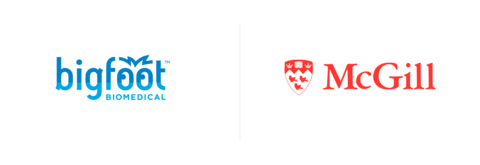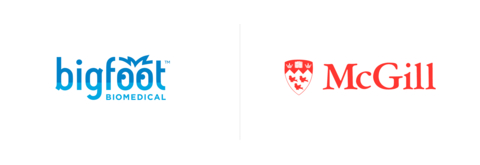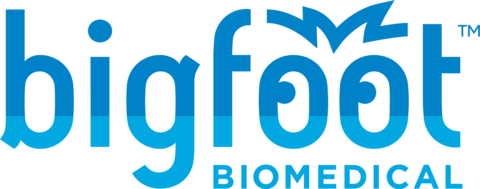MILPITAS, Calif.--(BUSINESS WIRE)--Bigfoot Biomedical (Bigfoot), a leader in developing intelligent connected injection support systems, today announced the acquisition of a reinforcement learning algorithm for the titration of insulin settings developed at McGill University. The algorithm is designed to observe how well people with insulin-requiring diabetes respond to a particular insulin dose, and provide a recommended adjustment based on their body’s response. It’s built to get smarter over time and to support healthcare professionals (HCPs) in improving diabetes care by helping their patients determine how much insulin to take and when.
McGill University conducted an in-silico retrospective study that applied the university’s algorithm to Bigfoot Unity user data from 20 patients to evaluate the algorithm’s ability to predict appropriate insulin dosing adjustments. Study results demonstrated the algorithm accurately predicted how the patient’s HCP adjusted their insulin dose.
“The retrospective study performed by the McGill University team demonstrates strong promise for the algorithm’s ability to help further simplify diabetes management,” said Jeffrey Brewer, CEO of Bigfoot Biomedical. “We look forward to the responsibility of taking the necessary next steps to bring their innovation to the diabetes community, including research and development to incorporate the algorithm into the Bigfoot Unity platform and collaborating with the FDA on the appropriate regulatory pathway.”
“As a scientist, there’s no greater reward than seeing your innovations have a concrete, meaningful impact on society,” said Ahmad Haider, Ph.D., Associate Professor of Biomedical Engineering and Medicine at McGill University. “I’m thrilled at the opportunity to see Bigfoot Biomedical, with its strong commitment to simplifying diabetes management, bring our technology to people with insulin-requiring diabetes, a condition that impacts an estimated 72 million people worldwide.1”
Bigfoot Biomedical’s currently available products include the Bigfoot Unity® Diabetes Management System, a simple and easy-to-use system that turns CGM data into clear and personalized dosing recommendations to help people with diabetes take the right amount of insulin at the right time. The system is particularly well-suited to those with type 2 diabetes who require insulin, a large group of people whose needs are too often overlooked.
Bigfoot is preparing to expand access to the system by offering it through the pharmacy channel later this year. This commercial model will allow for Bigfoot Unity to be prescribed within a prescriber’s workflow and for their patients to be able to get it with a simple copayment.
About Bigfoot Biomedical, Inc.:
Bigfoot Biomedical (Bigfoot), headquartered in Milpitas, California, was founded by a team of people with personal connections to type 1 and type 2 diabetes. Bigfoot aims to free people from the burdens of living with insulin-requiring diabetes, improve access, and support health care professionals in optimizing diabetes care. Bigfoot is an unconventional company taking an unconventional approach. Unlike others, Bigfoot looks at insulin therapy holistically, and utilizes services, support, and novel business models. The company partners with healthcare professionals to deliver simple, connected, and comprehensive solutions for the large number of people who have been overlooked by diabetes innovation. Learn more at www.bigfootbiomedical.com and by following us on LinkedIn, Twitter, Instagram, and Facebook.
Bigfoot and Bigfoot Unity are trademarks or registered trademarks of Bigfoot Biomedical, Inc. in the United States of America and other various jurisdictions. All rights reserved.
About McGill University:
Founded in Montreal, Quebec, in 1821, McGill University is Canada’s top ranked medical doctoral university. McGill is consistently ranked as one of the top universities, both nationally and internationally. It is a world-renowned institution of higher learning with research activities spanning three campuses, 11 faculties, 13 professional schools, 300 programs of study and over 39,000 students, including more than 10,400 graduate students. McGill attracts students from over 150 countries around the world, its 12,000 international students making up 30% of the student body. Over half of McGill students claim a first language other than English, including approximately 20% of students who say French is their mother tongue.
1 World Health Organization. (2021). Keeping the 100-year-old promise: Making insulin access universal. Retrieved from https://www.who.int/publications/i/item/9789240039100




